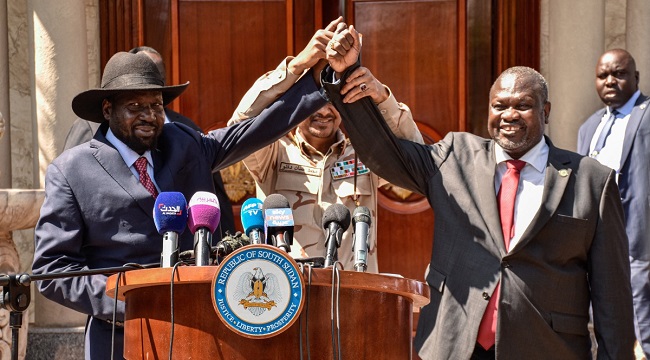South Sudan’s political tension took a dramatic turn on Wednesday when First Vice President Riek Machar was arrested in the capital, Juba. A convoy of heavily armed vehicles surrounded his residence before taking him into custody, a move that has sparked fears of escalating violence.
Machar’s arrest follows weeks of growing conflict and signals a breakdown in the power-sharing agreement between him and President Salva Kiir. The deal, which was meant to hold the fragile peace since 2018, now seems on the verge of collapse, raising concerns about a potential return to widespread conflict.
A statement from Machar’s party condemned the arrest, describing it as an unconstitutional move by the Minister of Defense and Chief of National Security. It revealed that Machar’s bodyguards were disarmed, and the Vice President was detained on unspecified charges.
The United Nations Mission in South Sudan (UNMISS) expressed alarm over the situation, warning that the arrest could push the country back into chaos. The head of UNMISS, Nicholas Haysom, called on leaders to exercise restraint to prevent the fragile peace from shattering.
South Sudan has faced ongoing challenges since gaining independence in 2011, with poverty and insecurity persisting despite efforts to stabilize the nation. Analysts suggest that President Kiir, at 73, may be trying to consolidate power, pushing Machar out through political maneuvers and cabinet reshuffles.
Since February, more than 20 of Machar’s political and military allies have been detained, many held without contact. Clashes between forces loyal to both leaders have been reported, particularly in Nasir County, Upper Nile State, and areas around Juba.
Machar’s military wing condemned the attacks on training centers, labeling them acts of terrorism. The bases were intended for integrating opposition forces into a unified army as part of the 2018 peace agreement. Government forces, however, accused Machar’s faction of aggressive actions earlier this week.
The unrest has left residents of Juba feeling uneasy, with some expressing fears of a return to war. Calls for dialogue and peaceful resolution have been growing louder as the international community watches with concern.
Despite the tensions, President Kiir has reiterated his commitment to peace, following meetings with church leaders. However, experts warn that without meaningful dialogue between the two rivals, the violence could spiral out of control, with potential consequences for the wider region.
As uncertainty looms, embassies from Norway and Germany have shut down, while the British and US missions have reduced staff and advised citizens to leave the country. The situation remains tense, with hopes fading for a peaceful resolution.
